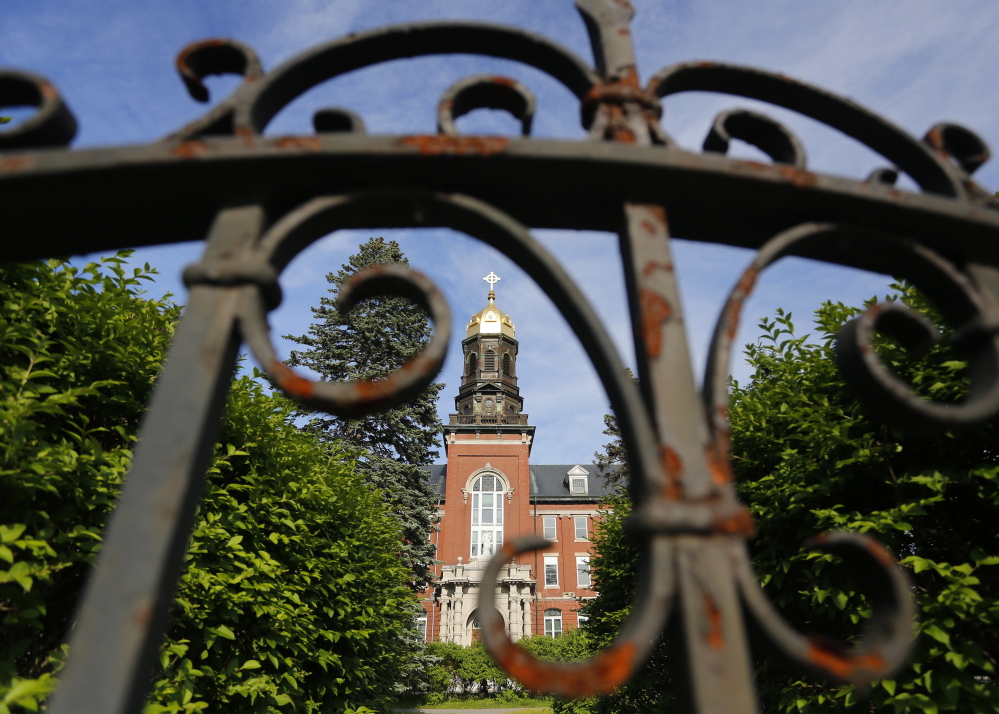A friend sidled up to me the other day with a hot tip.
He met a woman in a diner who told him that the reason there is so much crazy development going on in Portland is that everybody on the City Council is a real estate developer. He thought I should look into it and maybe write an exposé.
I told him that I don’t have to. It wouldn’t matter if all of the councilors were developers with projects in the city – and none of them are, by the way – because there is no crazy development going on in Portland. What is crazy is how many projects are being slowed down or killed by politics.
The latest under threat is a plan for a 13.5-acre property in Deering Center. It would turn the historic Sisters of Mercy Convent into a housing project that over time would create 300 apartments for seniors, with most of the units kept at affordable rates.
Neighbors have buried the council with petitions and phone calls, calling on them to stop the development, which they claim will ruin their neighborhood. After hearing hours of testimony Monday, the council did what it does best and put off voting on the measure until later.
That’s a win for the NIMBYs who know that delay is always bad for developers. But it’s not good for Portland.
Despite what the woman in the diner said, there is no out-of-control growth in Portland.
According to the U.S. Census Bureau, Portland was home to an estimated 66,666 people as of last July 4. That’s up from 66,194 in 2010, a whopping 472 people for an increase of less than 1 percent. During the same period, the national population grew at more than 3 percent. If there is crazy growth, it’s not happening here.
Portland has infrastructure built for a population of 80,000 or so people. Bumping along under 70,000 means that those of us who are still here will have to pay more in taxes. As our water mains, sewers, schools and roads continue to fall apart, we will have to pay a lot more.
There is a nearly zero vacancy rate in the city’s apartments. As new people move to town – think retirees or telecommuters on Munjoy Hill – they are renting apartments that used to house families. Where are those families supposed to go?
We need more housing for the people who want to be here and make Portland a great city. That means more housing for low-income families, more housing for middle-income families, more for students, recent graduates, senior citizens and, yes, wealthy people.
Remember, the rich don’t go homeless. If you don’t let them build it, they will come anyway and buy what already exists, making housing more expensive for everyone else.
It’s unclear what these opponents think they’re saving. In a story about Monday’s public hearing, a woman was quoted as explaining why she moved to Maine from California to live in Deering Center: “It is rural. It is nice and it is a community.”
Well, two out of three ain’t bad. It may be nice and it may be a community, but it’s not rural.
It’s smack in the middle of the state’s biggest city. Luckily for her, the rest of Maine offers many attractive rural options, but the city is where you want to put the people.
If this were the only neighborhood where there’s been this kind of reaction, it would be tolerable, but it’s not. Munjoy Hill residents are circulating petitions to limit a mixed-use redevelopment of a derelict industrial site on the Eastern Waterfront because it may interfere with some residents’ views.
In the West End, neighbors are getting worked up about an affordable housing project on Carleton Street because it would put 37 affordable apartments on what’s now a parking lot, making it harder to find a spot on the street.
West Bayside is so unpopulated it had to import its indignant neighbors from the West End, when Peter Monro took the city to court, forcing the Federated Cos. to cut the size of its proposed high-rise tower in half.
It’s not as if there is one group of anti-development activists who are sabotaging all of these projects. There doesn’t appear to be much overlap in the membership of the groups or ideological common ground between them.
But they all are saying the same things, and it usually starts with the words, “I’m not anti-development, but …”
I got a hot tip for the lady at the diner. If we can’t get together on building the housing this city needs, a lot of us won’t be able to live here anymore.
Somebody ought to write an exposé about that.
Send questions/comments to the editors.



